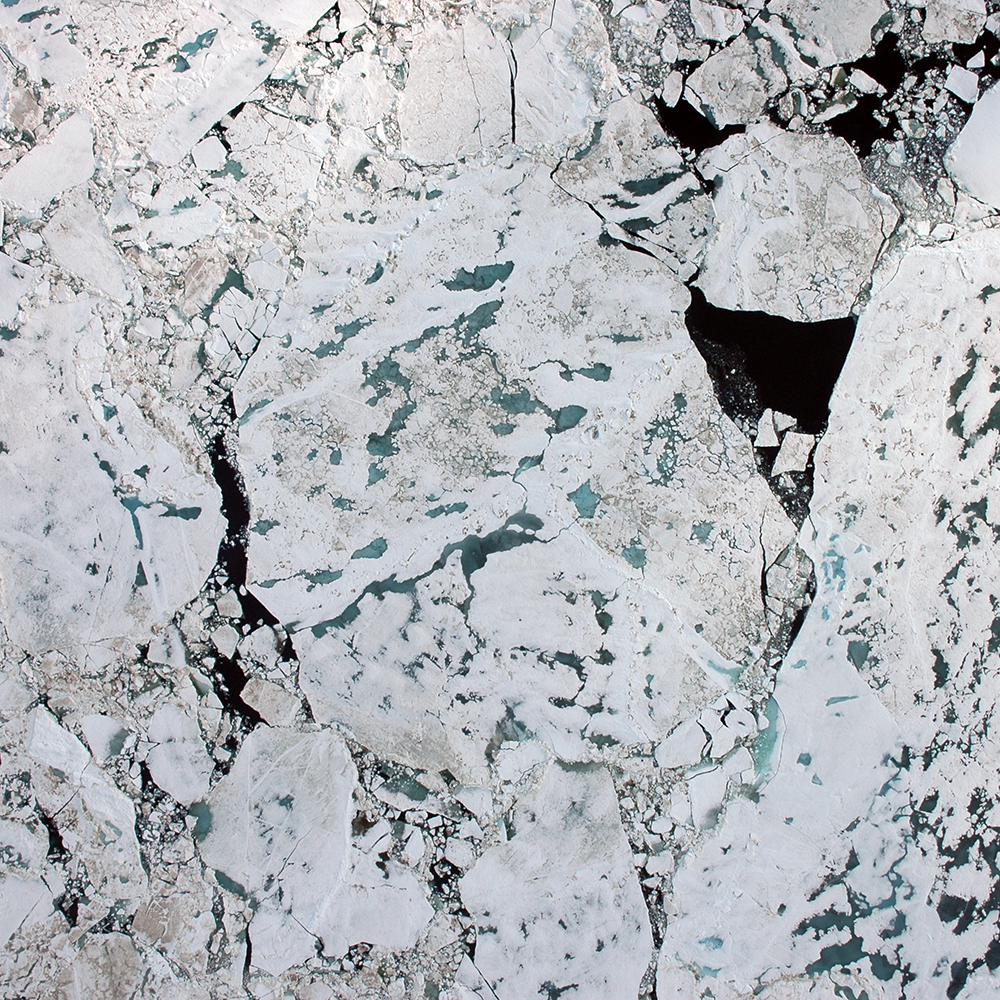National Science Foundation funds diverse collaborators to study Arctic change
Heather McFarland
907-474-6286
Nov. 2, 2021

Arctic sea ice
The National Science FoundationŌĆÖs Office of Polar Programs recently funded the University of Alaska Fairbanks and six other institutions to synthesize what is known about the changing Arctic environment and its consequences.
Over the next five years, the, known as SEARCH, will bring together scientific, Indigenous and decision-making experts to more fully understand environmental change in the Arctic. TheyŌĆÖll make the results available to decision-makers in local communities, multiple levels of government and the private sector.
SEARCH will practice coproduction, a method that has for decades been considered a more inclusive and equitable means of creating new knowledge, better understanding and more meaningful sharing of that new knowledge.
ŌĆ£The Arctic is witnessing rapid and sudden changes,ŌĆØ said Brendan Kelly, the projectŌĆÖs chief scientist and a professor with the ąįė¹╔ń International Arctic Research Center. ŌĆ£And understanding the impacts of those accelerating changes ŌĆö on people, business and the Arctic ecosystem ŌĆö requires the expertise of diverse disciplines and knowledge systems, as well as of those who use the understanding in decision making.ŌĆØ
Partners include the Alaska Business Forum, ArcticNet in Canada, the Chukotka Branch of the North Eastern Federal University in Russia, the Fram Centre in Norway and the Pacific Northwest Economic Region. SEARCH brings together experts from these organizations and others to create new knowledge and practices for advancing understanding of the rapidly changing Arctic.
SEARCH will form three coproduction teams ŌĆö each including scientific, Indigenous and decision-making experts ŌĆö dedicated to understanding the multifaceted nature of changes in the Arctic. One team will focus on the processes and ecological consequences of Arctic change. Another will be committed to understanding human well-being in the changing Arctic. The third will illustrate the consequences of environmental change for geopolitical and economic stability in the region. The combined findings will be shared in plain language and in technical publications.
The project was conceived and designed by the International Arctic Research Center, the Alaska Native Tribal Health Consortium, the Eskimo Walrus Commission, the National Center for Atmospheric Research, Oregon State University, Stantec Inc., the University of Michigan and the Wilson CenterŌĆÖs Polar Institute. It will build a novel synthesis spanning multiple knowledge systems and disciplines based on the extensive knowledge of scientific and Indigenous experts.
Project collaborators will receive $6.5 million over the next five years, with $5.6 million going to ąįė¹╔ń and its partners in Alaska.
ŌĆ£This is a truly collaborative effort; we have been involved in every step,ŌĆØ noted Vera Kingeekuk Metcalf, executive director of the Eskimo Walrus Commission in Nome and a co-leader on the project.
Renee Crain, Arctic sciences research support and logistics manager at the National Science Foundation, expects the project to address pressing issues in the Arctic.
ŌĆ£This collaboration addresses equity and evidence-based decision-making, recognizing the value of different knowledge systems that are integral to the resilience of people and communities in the Arctic,ŌĆØ Crain said.
ADDITIONAL CONTACTS: Athena Copenhaver, SEARCH assistant director, aecopenhaver@alaska.edu
055-22


